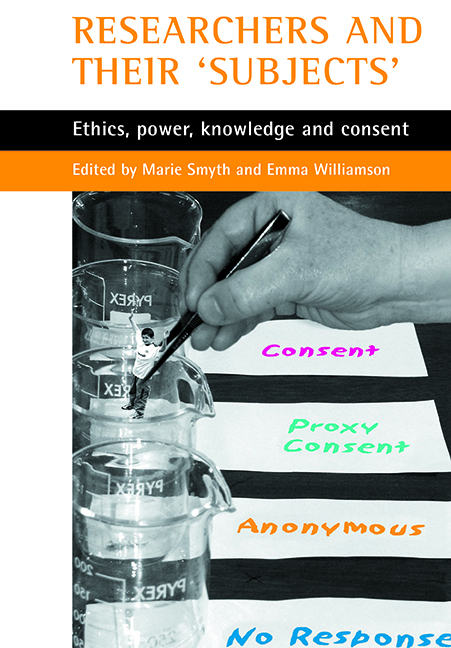Introduction
Published online by Cambridge University Press: 20 January 2022
Summary
Why this book?
On 6 February 2002, the Academy of Learned Societies for the Social Sciences organised a seminar in London to examine the theme of ‘Ethics and Research Guidelines’ from a diversity of perspectives. The majority of participants and speakers at that event were social scientists with an interest in ethics and research. All of the major professional social scientific bodies were represented: the British Sociological Association, the Academy of Learned Societies for the Social Sciences, the Social Policy Association and the Social Research Association. The aim of that meeting was to discuss the consolidation of ethics guidance given to social scientists from the various bodies represented there.
What emerged more clearly than ever was the diversity of views and approaches among social scientists concerning ethical issues. Some delegates were concerned about external review, others about gate keeping. Others were concerned with the increased bureaucracy involved in ethical regulation and the possible impact that more stringent ethical review processes could have on social research. As many have realised, even greater diversity is apparent when social science research approaches and practice are juxtaposed with those in medicine or the physical sciences.
The editors of this book first met one another at that meeting. There, they participated in a lively discussion in which divergent views emerged and discovered a common interest in and concern for increasing the accountability of the researcher; in other words, improving the ethical quality of research by managing more effectively the power differentials between researchers and those they research. This book was conceived out of their subsequent discussions.
One particular shared concern was that the arrangements for ethical governance being discussed at that meeting took little or no account of research participants’ views. Research into participants’ views is rare, even within the health and medical ethics literature, although some research has been published on this topic alongside so-called ‘grey’ literature (Alderson, 2000, 2001; Ashcroft et al, 2003; Whong-Barr and Haimes, 2003; Williamson et al, 2004). In spite of this, there is still a lack of participant involvement in the consideration of research ethics. Indeed, little attention has been paid to the views of research participants on their role in and experience of research, and most writing on the subject is largely a by-product of research on other issues.
- Type
- Chapter
- Information
- Researchers and their 'Subjects'Ethics, Power, Knowledge and Consent, pp. 1 - 16Publisher: Bristol University PressPrint publication year: 2004

